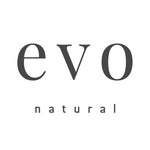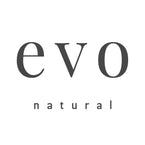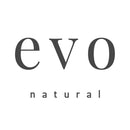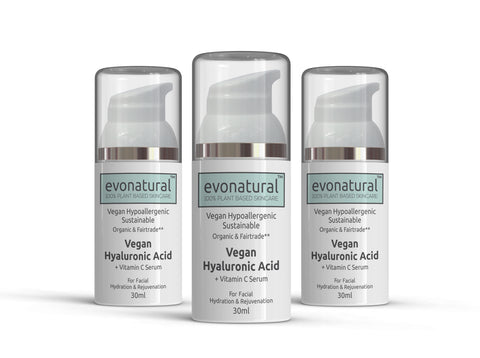Just HOW MUCH product are we using?
Let's face it, girls, we are ADDICTED to our SLAP. Well we are! We can barely call a day a day if it doesn't start by slathering on some lovely smelling foaming body wash, a separate one for our face, obvs, another for our hair, oh yes, gotta condition now. Oh Darn, I forgot the medicated face cream AGAIN...but it's OK, I remembered to exfoliate...now time to cleanse tone 'n moisturise. Hand soap, right - now I can get started with the routine!
NOT Such A Great Idea...
According to naturopathic doctor Trevor Cates, the average woman uses 12 personal care products a day containing a staggering 168 different chemicals. To me, that is a very conservative estimate. I have seen shampoos with a higher count than 100 ingredients alone. Other studies have recorded around 20 products per day and over 500 chemicals. Yup. So this means that before you've even had your steel cut oats you have likely absorbed directly into your bloodstream a huge quantity of really rather nasty substances. A study by the Herb Research Foundation found that skin absorbs up to 60% of what it comes into contact with. - girls, this is what we put on our faces, in our hair and snuggle our children whilst doused in. This information is especially pertinent if you are pregnant or trying to conceive - you seriously do need to think about this because what you are about to read? It ain't so pretty. But don't just take my word for it - I'm here to sell you natural alternatives after all! After this article you will find corroborating articles from recent news stories. Please do check them out.
Top Chemicals To Avoid - And WHY
Dr Cates has drilled down to give us this amazing list of the top 20 chemical compounds to avoid within our beauty products - each with a summary of the problems they are associated with causing. Here are the top 10, don't worry, the rest will be in the next post. I just urgently wanted to share this, and besides, not to overwhelm you. It does make depressing reading though, but the HUGE silver lining is - with a little digging there are now many WAY better alternatives than these, including EvoNatural, at pocket-friendly prices so come on and help me get the word out there!
We Are Just Beginning to Uncover The Truth
Cates states that ‘Even in tiny amounts, many of the chemicals commonly found in our cosmetics can have a tremendous health and hormonal impact, and we are only beginning to understand the consequences.' And accordingly, you will find a great deal being said in favour of the big beauty giants, who, to protect their billions in profit, will throw a lot of money at keeping this stuff quiet. But the dirty secret is out. Now there are just too many studies and facts proving exact levels and types of dangers ranging from cancer causing to merely eczema exacerbating. So, without having to read them all, here is the heads up on the top 10 recommended ingredients on the list to avoid. And do sign up to EvoNatural.com to make sure you don't miss out on the rest.If you've seen enough already, feel free to check out our non toxic skincare here.
- Fragrance Often listed under the term ‘Parfum’ - Seriously, avoid! These are known to comprise of dozens, even hundreds, of individual chemicals, termed ‘parfum’ to avoid having to list them on the label. Warning : Allergic Reactions and Hormone Distruption. Choose ones containing natural essential oils instead.
- Formaldehyde and formaldehyde releasers often appear on the listings as (quaternium-15, diazolidinyl urea, DMDM hydantoin, bronopol, or imidazolidinyl urea). Now, who would have thought formaldehyde, more famously used to preserve cadavers, aka, dead people, was also used in your daily beauty products? Weren't expecting that one were you. Widely used in nail varnish, hair dye and false lash adhesives.Warning : Linked to Cancer risk
- Mineral oil and petroleum (also called petrolatum, petroleum jelly, and paraffin oil) Unfortunately, these babies are the building blocks of most of your beauty products, from shampoos, moisturisers to make up. Often comodogenic (pore blocking). They are often the cause of blackheads and acne. But that my lovely is not the big problem. The main concern is that they contain impurities not listed on the ingredients that tests have shown to be carcinogenic. Warning : known cancer risk in animals
- Parabens (propylparaben, isopropylparaben, butylparaben, and isobutylparaben) This is the big one. These are one of the most commonly used preservatives as they are so cheap, and despite the dangers and their high skin irritant factors are effective preservatives. They can be found in a wide range of beauty products from, make-up, to deodorant, moisturisers and shampoos. Due to scrutiny from lobbyists and the 'natural products' brigade, there has thankfully been a recent shift to reduce the amounts in some products, but this is not nearly enough to be safe. They have surprisingly not yet been outlawed. Warning : In women, These Estrogen-mimicking Hormone disruptors are known to increase the growth of breast cancer cells. Yup, even in tiny amounts. Men who use these products have lower sperm counts and less testosterone than men who do not use them. Like I said, they have been used in almost all over the counter products for decades. Just saying.
- Ethanolamines (diethanolamine [DEA], monoethanolamine [MEA], and triethanolamine [TEA]) Found in most everyday cosmetics including soaps, shampoos, hair conditioners and lotions, shaving balms, eye make up & blusher, foundations, fragrances and sunscreens.Warning : These oil industry derived ingredients contain impurities called ‘nitrosamines’ again, Studies have shown them to cause cancers in a variety of animal species. And classify them as respiratory and organ toxicants.
- Oxybenzone (benzophenone), octinoxate, and homosalat Generally found in ‘SPF’ sunscreen products such as sunscreens & lip balms. * A study in 2008 revealed oxybenzone was found in the urine of 97 per cent of people tested. WARNING: these chemicals may pose a risk to reproductive systems. Oxybenzone has been increasingly linked to early puberty in girls, low sperm count and male infertility, and an increase in hormone-related cancers in men and women. Research also shows oxybenzone is bioaccumulative – IE it can build up in fatty tissues and your body can’t get rid of it so easily.
- Hydroquinone (or tocopheryl acetate) and other skin lighteners This can cause a skin disease called ochronosis with 'disfiguring and irreversible' blue-black lesions on exposed skin. Found in certain cleansers, moisturisers, and other 'skin-lightening' products and in the US comes with a warning from the Food and Drugs Agency (FDA).In addition, hydroquinone has been linked to an increased risk of skin cancer. These are. Illegally imported skin lighteners can also contain mercury. Keep Away!
- Butylated hydroxyanisole (BHA)Found in many cosmetics, but particularly prevalent in lipstick and eyeshadow. BHA has been classified as quote 'reasonably anticipated to be a human carcinogen' by the US National Toxicology Program based on animal studies. And the European Union (EU) classifies it as an 'endocrine disruptor' (a hormone disruptor). Warning: At higher doses, this spells danger to anyone of reproductive age, those who are pregnant and those trying to conceive. It’s known to decrease testosterone and the thyroid hormone thyroxin and to adversely affect sperm quality and the sex organs of rats.
- Triclosan and triclocarban - Commonly used as 'antimicrobial' agents in personal care products, such as soaps especially ones proclaiming to be 'antimicrobial' These chemicals are so widespread, they were found in the urine of 75 per cent of people tested. Yet research shows that using antibacterial soaps are no more effective than using regular soap and water. Warning: The substances are an endocrine disruptor, meaning they can disturb thyroid, testosterone, and estrogen regulation, which can create a host of issues including early puberty, poor sperm quality, infertility, obesity, and cancer. Children exposed to these compounds at an early age also have an increased chance of developing allergies, asthma and eczema.
- Coal tar ingredients (including aminophenol, diaminobenzene, and phenylenediamine) Coal tar is a by-product of coal processing and is found in creams, ointments, soaps, and dandruff shampoos. WARNING: capable of causing cancer in humans.* Though the EU has banned the use of coal tar in cosmetics - be careful if you buy products when abroad.
What Can We Do?
Of course, it's a matter of voting with our £££ & $$$ - we stop supporting companies that use the dangerous stuff, and start buying from more ethical and consumer focussed ones. But I get it. Back in the land of reality, how many of us have time to really read all of that tiny writing on the back of our products or shop around? We don't, and whilst we can't see the immediate danger - we turn a blind eye.
I'll let you in on a secret. The 'danger' list of ingredients above are found in almost everything. There are only 1% of beauty products available that don't use them, horrifying I know. So a faster solution - and one that doesn't involve going to the supermarket with a magnifying glass and reading the small print - is simply to choose ethical suppliers - enter 'EvoNatural' because, although these are vastly outnumbered by the non-ethical bulk synthetic cosmetics, they are worth seeking out as they are providing products that are better for you, safer and much higher performing. Besides, would you continue to eat at a restaurant where it was discovered that management had been found to be slowly poisoning its clientelle? You wouldn't. The same is happening here. So the question is - can we really put our trust in companies, nay an entire industry who put carcinogenic ingredients into babycare products for profit? And can we trust them to self regulate (As they currently are). It might be time for a rethink.
Check back soon or sign up for part II of ingredients to avoid.
Click Evonatural to view our non-toxic skincare range.
Wanna know more? Here's some further reading.
Check out our range of non-toxic skincare today.
https://www.independent.co.uk/life-style/health-and-families/twelve-chemicals-to-avoid-in-your-beauty-products-2122829.html
https://www.huffingtonpost.com/ronnie-cummins/the-oil-spill-in-bathroom_b_614215.html
https://www.theguardian.com/sustainable-business/danger-drugstore-womens-cosmetics
http://naturallysavvy.com/eat/10-synthetic-cosmetic-ingredients-to-avoid
https://www.naturalhealthnews.uk/article/petrochemical-beauty-no-thanks/




 Click
Click